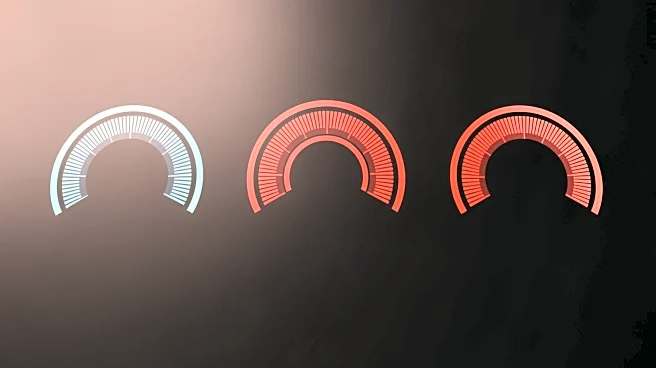What's Happening?
NASA scientists have discovered potential evidence of past life on Mars in a rock sample collected by the Perseverance rover. The sample, named Sapphire Canyon, was found in the Jezero Crater and contains organic matter, including minerals like vivianite and greigite. These minerals are often associated with microbial metabolisms on Earth. The discovery was made using Perseverance's SHERLOC and PIXL instruments, which detected the presence of iron, phosphorus, and sulfur. While the findings suggest Mars may have hosted primitive life, alternative nonbiological explanations cannot be ruled out.
Why It's Important?
This discovery represents the strongest evidence yet that Mars may have once supported life, potentially altering our understanding of the planet's history. It underscores the importance of continued exploration and research to determine the origins of these organic materials. The findings could influence future Mars missions and the allocation of resources for space exploration. The potential cancellation of the Mars Sample Return program due to budget constraints highlights the challenges faced by NASA in pursuing these scientific endeavors.
What's Next?
NASA is considering alternative methods to return samples to Earth for further analysis, as the Mars Sample Return program faces potential cancellation. Scientists are advocating for additional lab experiments to explore both biological and nonbiological scenarios. The agency is exploring cost-effective approaches to continue its research on Mars, with the goal of bringing back samples by 2035. The scientific community is expected to engage in further studies to validate the findings and explore their implications.









